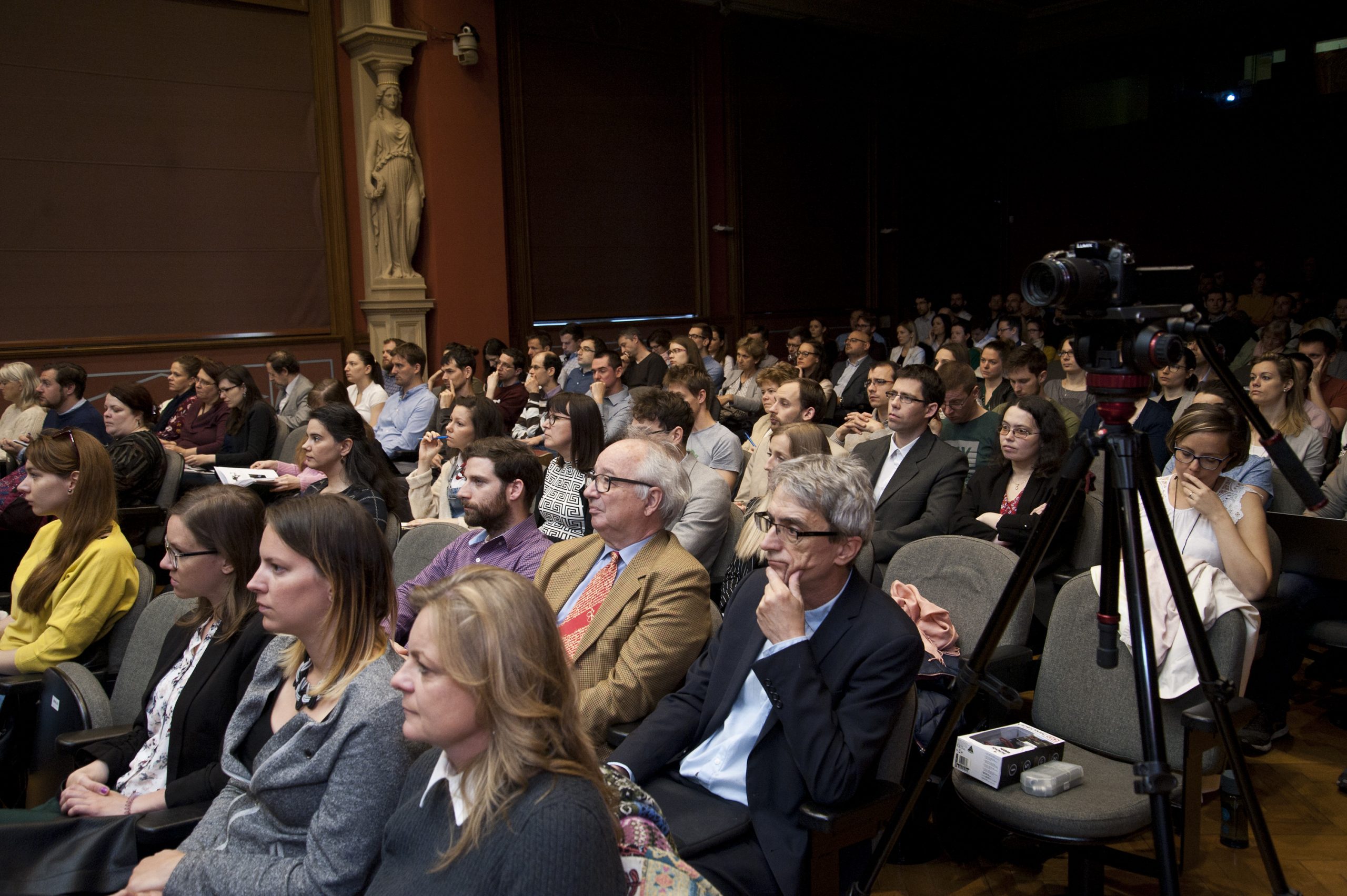
News
The story of the Hungarian Young Academy began three years ago, in the summer of 2016. As a result of the preparatory work then initiated, the Young Researchers’ Forum was organised for the first time in 2017, during the 188th General Assembly of the Hungarian Academy of Sciences. Participants of the event had an opportunity to learn about each other’s standpoints, and put forward proposals regarding the situation of young researchers working in various scientific disciplines.
To access the photo gallery of the event, please click here.
It was the Young Researchers’ Forum, which had been part of Prof. László Lovász’s second presidential programme, that gave impetus to the first large-scale survey in Hungary, which analysed the situation of young researchers under the age of 45. The key finding of the questionnaire survey filled in by 1760 respondents was that those embarking on a scientific career are predominantly motivated by the excitement of discovery and commitment to science, but in order to prevent the substantial drop-out rate from research careers, it would be important to further increase salaries, expand research funding and develop infrastructure.
Simultaneously with the Young Researchers’ Forum, preparatory work for the founding of a “Young Academy” began. Last May, Prof. Mihály Pósfai, ordinary MTA member and chair of the ad-hoc committee set up by President László Lovász to study the situation of young researchers, presented the proposal regarding the statutes of the body to be created under the name “Young People’s Academy”. President László Lovász informed the participants of the Young Researchers’ Forum that no one within MTA had objected against the establishment of a new organisation of this kind, adding that such a body could become a significant resource for the entire Hungarian academia.
This January the Ad-hoc Committee of Young Researchers elected its 24 initial members, and in March, the MTA Presidential Board approved the founding of HYA.
The goals of the Hungarian Young Academy:
As presented at the inaugural meeting of the Hungarian Young Academy, the body (comprising a maximum of 60 members) will admit members of the MTA public body holding a PhD for a mandate of five years, who are under the age of 40 (or 45 in the case of researchers raising children) at the time of their application. The main criterion for election is scientific excellence and their planned activities as members. The Hungarian Young Academy will strive to achieve a balanced membership according to gender, scientific disciplines and geographical regions. New members will be elected each year by researchers who are already part of the organisation.